
July 04, 2025
Bulletin interne de l'Institut Pasteur

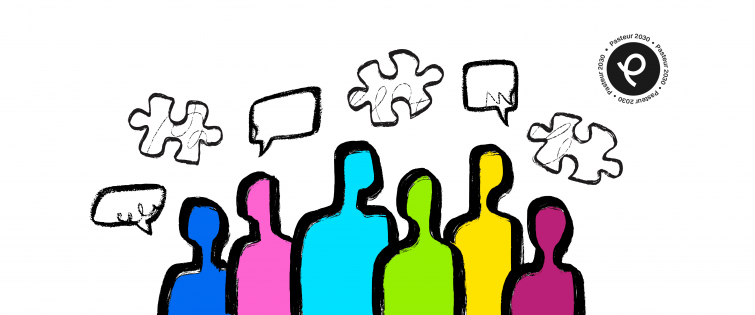
Report on June 30 Town Hall meeting – focus on the Strategic Plan in action

On June 30, the Institut Pasteur held its latest Town Hall meeting to tell staff about several of the key advances and achievements of the Pasteur 2030 Strategic Plan, with contributions from the heads of the strategic priorities and several people involved in major cross-cutting projects combining science and research support services.
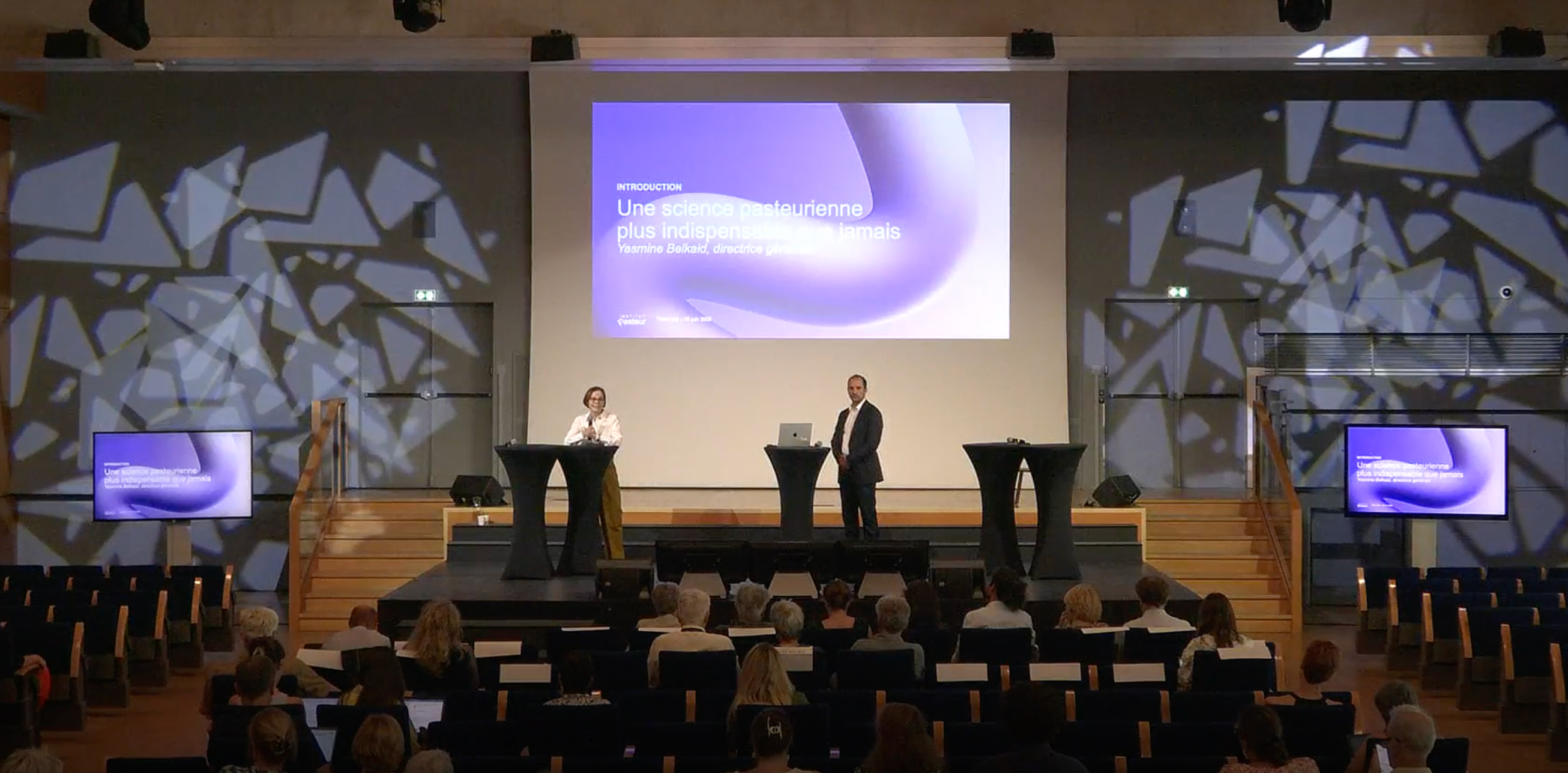
Nearly 150 of you attended in person, and an impressive 350 joined online. The meeting was introduced by Yasmine Belkaid, who spoke passionately about the fact that "the Institut Pasteur's science is more crucial than ever at a time when science, in the broadest sense, has never held so much promise while coming up against so many challenges!" The President also pointed out that the Institut Pasteur is continuing to seize the opportunity to defend free and independent science for the benefit of society at large and to strengthen its commitment to transferring and promoting scientific culture and training up the next generation of scientists.
This introductory address was followed by presentations and discussions, with a focus on five key areas:
-
Focus on the Pasteur 2030 Strategic Plan, especially the scientific ambition presented by Yasmine Belkaid, the four scientific priorities introduced respectively by Aude Bernheim, Arnaud Fontanet, Gérard Eberl and Chiara Zurzolo, who spoke in turn about the challenges and ongoing work in leading these priority areas, the announcement by Yasmine Belkaid of the appointment of a Scientific Affairs Advisor, the latest news on the ongoing G5 recruitments and incentive programs presented by Patrick Trieu-Cuot, and a closer look at three flagship projects in the Strategic Plan: the CMTV presented by Philippe Bastin, the CVI/EVH program led by James di Santo, and the EMBL partnership presented by Sebastian Baumgarten.
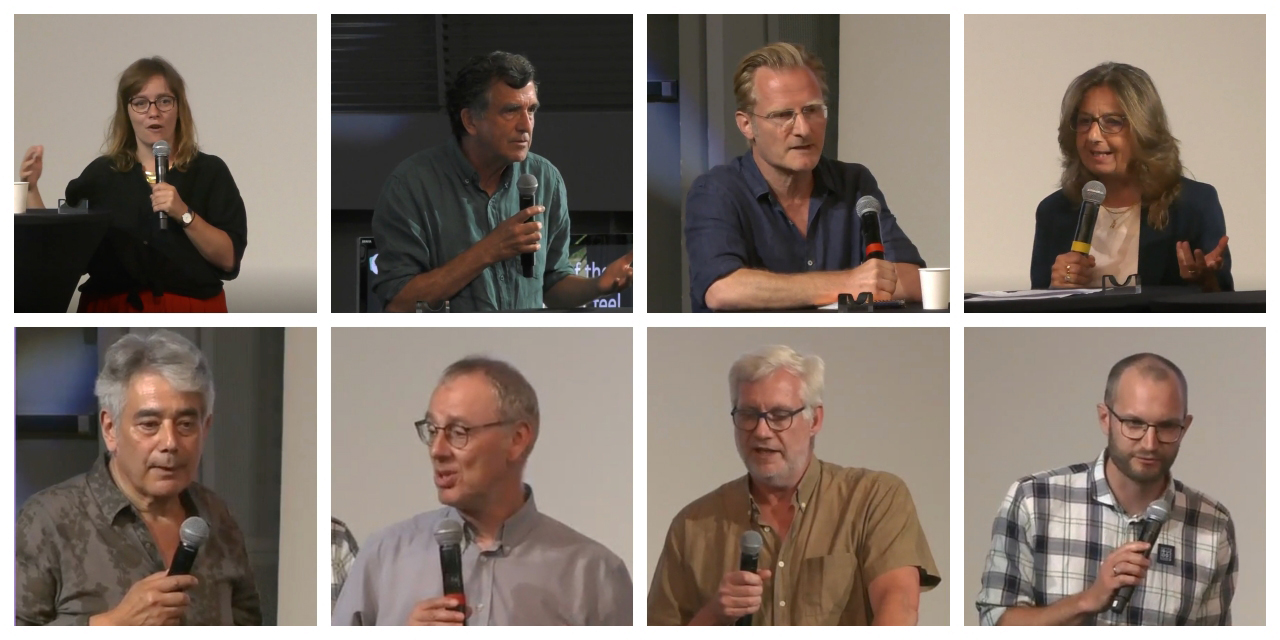
-
Focus on the human capital required to achieve the goals in the plan and the need to meet the strong expectations of the Institut Pasteur community in terms of cohesion, support, simplification and participation. Yasmine Belkaid, Henri Pitron, Mariana Mesel-Lemoine, Monica Sala, Frédéric Durand and Fanny Forgeau took to the floor in turn to present information related to the 2024 barometer and the need for a meaningful social dialog that reflects contemporary society; the need to give new impetus to internal communication; the importance of incorporating all voices to foster inclusive science; the need for investment to remain competitive with early career scientists; support for scientists' career development; skills development and the issue of internal mobility; and several simplification processes under way to improve quality of working life and streamline organizational processes.

-
Focus on financial challenges, led by Françoise Perriolat, who explained the current financial situation and set out solutions to guarantee the Institut Pasteur's long-term future. Françoise Perriolat shared several charts showing future forecasts, including sustainability between now and 2040, and explained that a working group has been set up to redefine the Institut Pasteur's business model so that it has more room for maneuver.
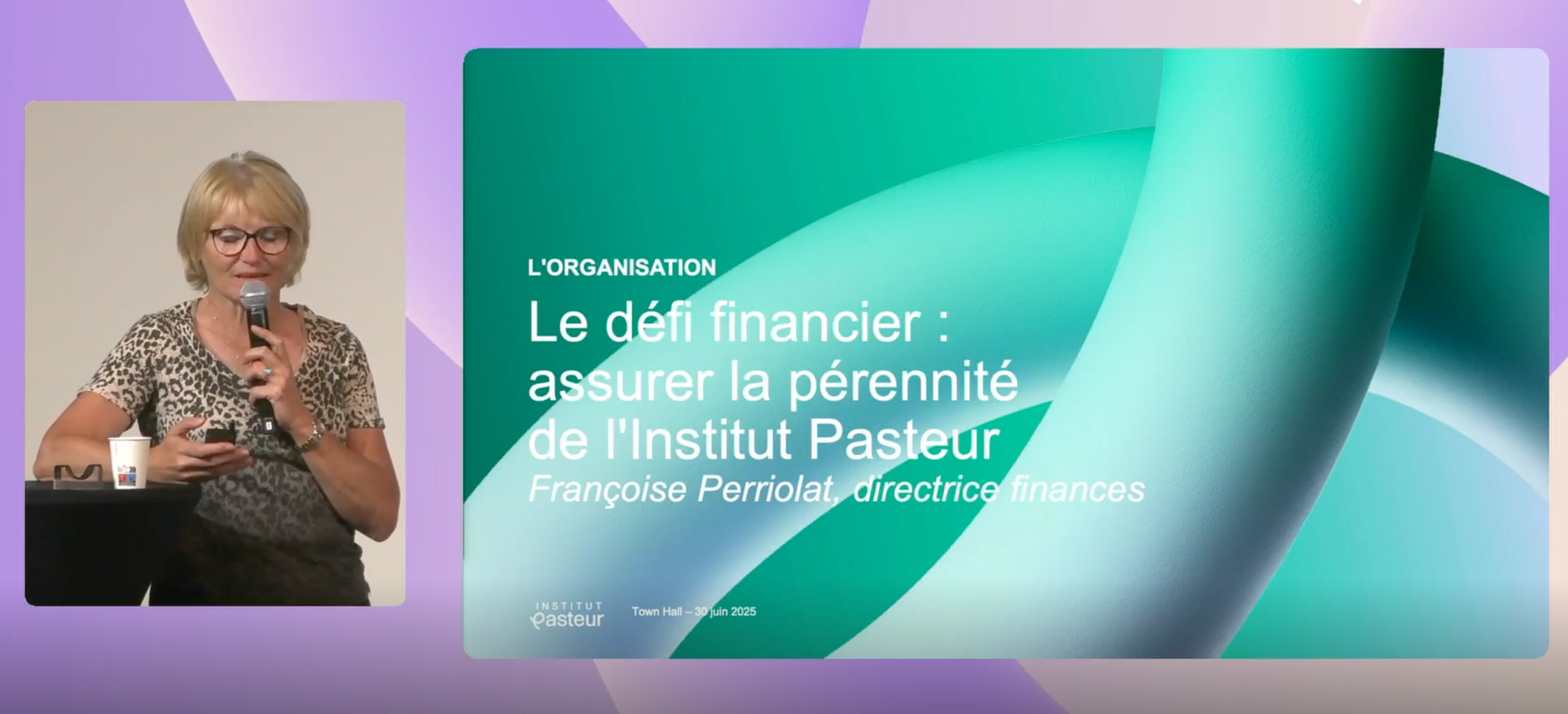
-
Focus on external relations to improve the Institut Pasteur's visibility with different sectors of society. This presentation, led by Henri Pitron, was an opportunity to look at the Institut Pasteur's new visual identity, which is being rolled out effectively within and outside campus to modernize the Institut Pasteur's image and boost fundraising efforts. Henri Pitron also spoke about the performance indicators for Pasteurdon 2024, which are particularly encouraging as preparations for the 2025 edition get under way. Finally, he emphasized the extent to which the Institut Pasteur's science is visible beyond the realm of academia and plays a major part in the media and scientific news landscape.
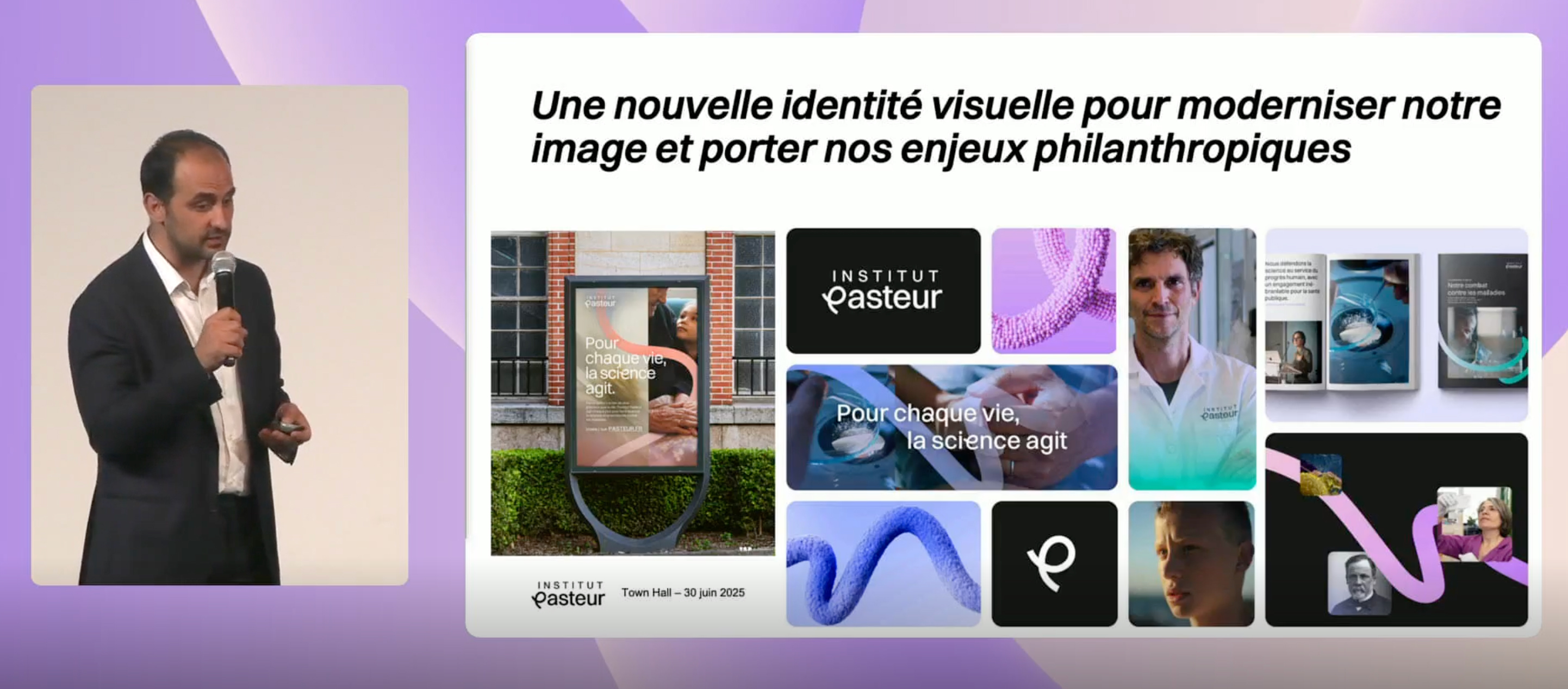
- Focus on three examples of collective projects led successfully by the Institut Pasteur's teams:
• Nathalie Denoyés and several members of the Green Team opened this session by presenting the significant efforts in the area of sustainable development reflected in the collective commitment of the more than 60 Green Team members. This was an opportunity to acknowledge the cross-cutting work carried out with several departments on campus for sustainable initiatives at the Institut Pasteur. Nathalie Denoyés invited Green Team members in the audience to come on stage to illustrate the wide range of different staff members working on this important CSR topic.
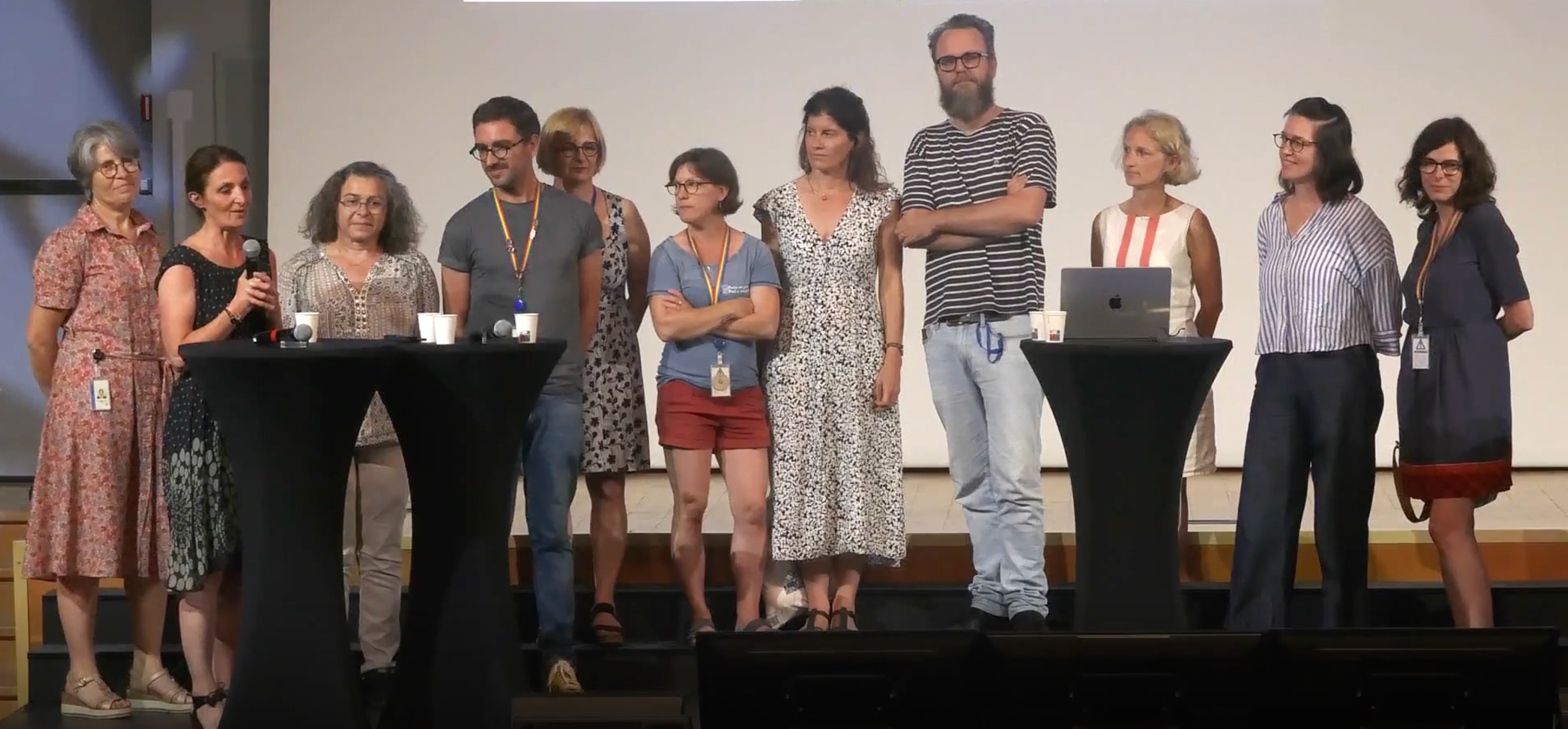
• Monica Sala then took to the floor to present all the efforts and initiatives to expand the Institut Pasteur's pool of accommodation for interns, PhD students, postdoctoral fellows and some scientists. Available accommodation units increased from 60 in 2024 to more than 95 in 2025, and these efforts will continue so that the Institut Pasteur can offer a growing range of accommodation options. Monica Sala thanked the departments that have been working to achieve this result.
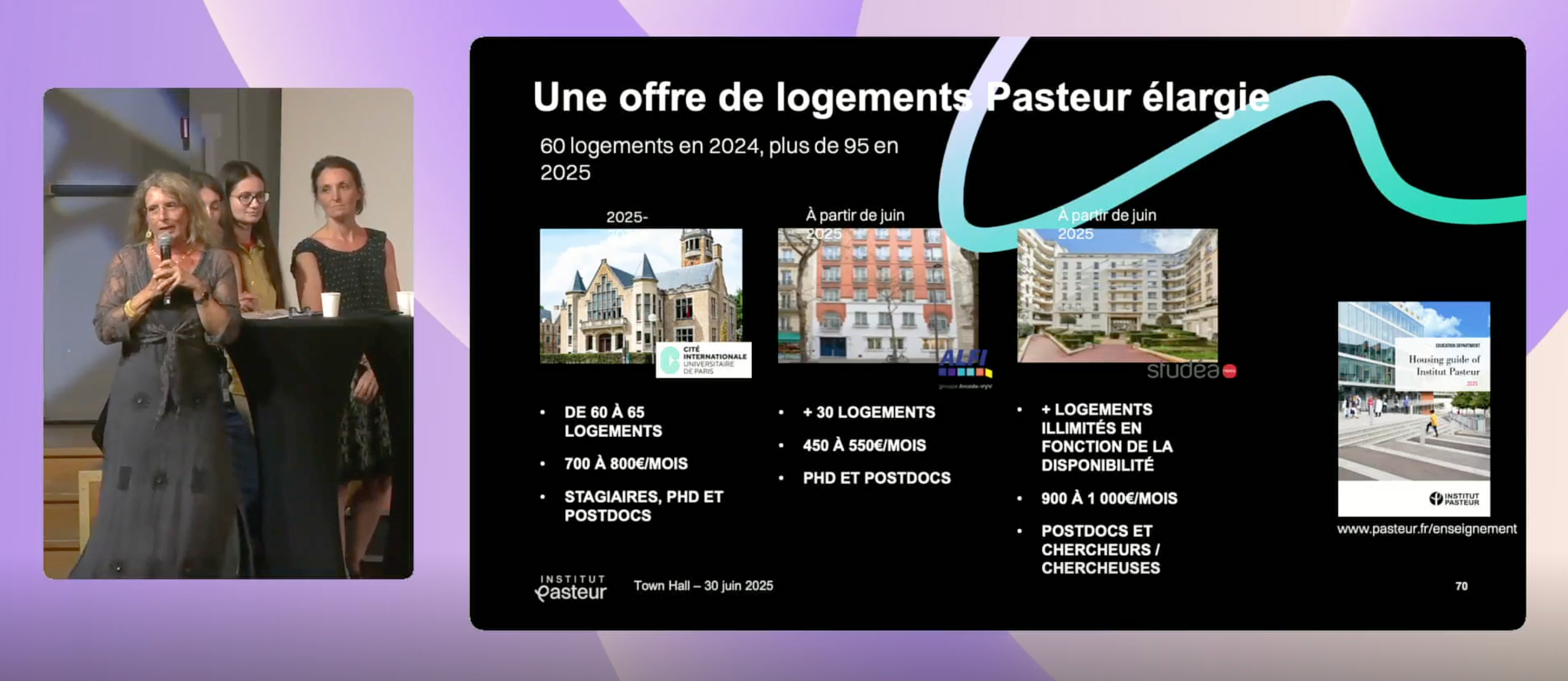
• Alice de Plunkett, Olivier Schwartz and Emma Leprêtre then presented the Institut Pasteur's "Art and Science" program, aimed at establishing a dialog with society through art, with initiatives combining the values and challenges of science with artistic projects and interpretations. The idea is to create new forms of outreach to spark public interest, while also developing partnerships with the artistic and cultural community. An overview of the successful 2025 edition of the "Nuit Blanche" event, part of the "Art and Science" program, followed this general presentation.

 To round off the meeting, a question and answer session was held, with questions from those in the room and following remotely via Zoom. Some answers were not able to be given during the session because of a lack of time. Click here shortly to access the answers.
To round off the meeting, a question and answer session was held, with questions from those in the room and following remotely via Zoom. Some answers were not able to be given during the session because of a lack of time. Click here shortly to access the answers.